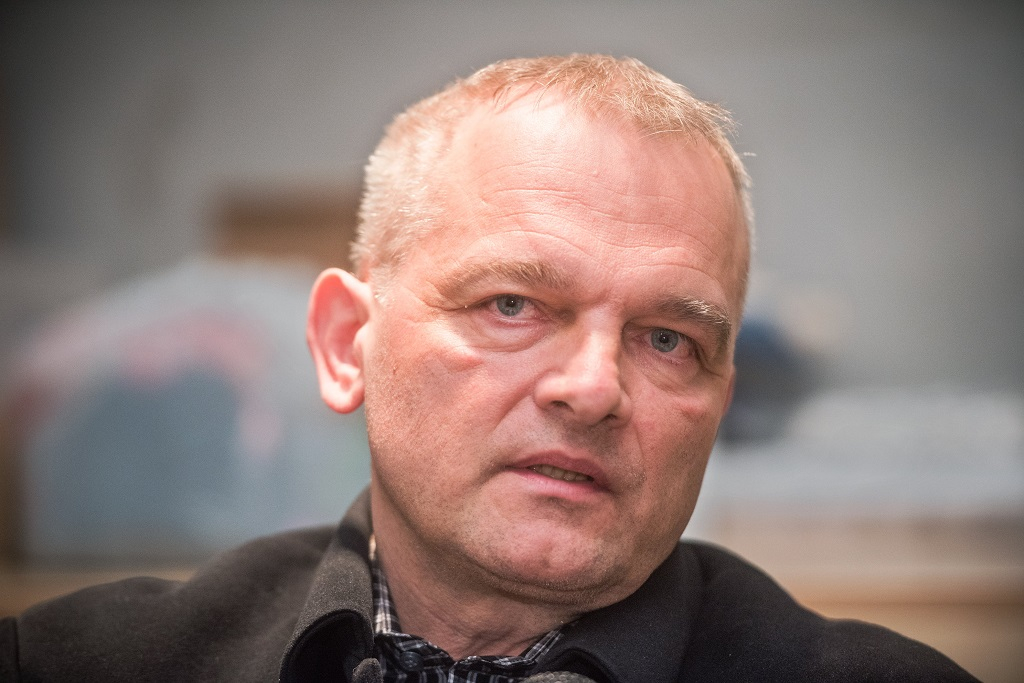By: Andrej Žitnik (Nova24tv.si)
Dr Alojz Ihan, in his column for N1, sharply criticised the resigned Minister of Health, Danijel Bešič Loredan, and exposed not only the emptiness of his tenure but also the shallowness of the entire coalition.
As emphasised by Dr Alojz Ihan, the Minister operated on the principle of “piecemeal” distribution of taxpayers’ money – 100 million here, a hundred million there, until it reached a billion. Ihan points out the key problem that has been haunting this coalition since the beginning of its governance a year ago – the coalition did not demand any concrete documents with specific figures and commitments from the minister. Instead, they would have experts delve into the details to assess the feasibility of the plans. This kind of approach is not an exception. The Golob’s government is running the executive branch of power based on promises that no one will ever fulfil, just like a swim on the cloud of promises, or perhaps some future right-wing coalition.
“No one ever demanded a document from the minister that would be at least at the level of a master’s thesis in health economics, where some professors could highlight certain sentences and paragraphs in red or yellow and ask the minister to explain the inconsistencies and questionable citations. It seems absurd, but when it comes to a plan worth hundreds of millions, everyone around the minister pretended they understood everything and trusted him solely on his words, promises, timelines, and metaphors about Finland, Estonia, and other distant lands. They played the excited courtiers from “The Emperor’s New Clothes”. It is no wonder that the minister became literally intoxicated with the feeling of unlimited financial power in healthcare reform,” Ihan wrote.
Big promises, but never materialised
The government coalition made grand promises during the pre-election period, announcing healthcare reform. However, throughout their entire year of governance, the healthcare system has been falling apart. We heard lofty words like “30 days to see a specialist”, “everyone will have a personal physician”, “we will eradicate corruption in healthcare”, but none of it has been realised. On the contrary, the situation has significantly worsened; waiting times have become even longer, and we have witnessed long queues due to a shortage of family doctors. Corruption and healthcare equipment suppliers have not been dealt with either. The healthcare system desperately needs new medical personnel, but they seem to be nowhere to be found.
Gave up to the Levica
The most important coalition party, Levica, has certainly contributed to the problem. It prevented the inclusion of all private doctors in the public healthcare system, only allowing those with concessions. As a result, even multimillion investments did not shorten waiting times, similar to what happened during Milojka Kolar Celarc’s time. Although the minister initially wanted to activate all available healthcare resources, he eventually gave in to the demands of the Levica party. The same scenario played out when he initially supported the retention of supplementary health insurance, only to sit down with Golob and Mesec the following week, claiming that abolishing it would be beneficial for Slovenian public healthcare, despite the majority of experts (except for some political opportunists) agreeing that the measure would be disastrous.
What’s to come?
It is expected that the next minister will be even worse than Loredan, as he at least had some insights into the operational aspects of the healthcare system. “A minister who is not familiar with all the specifics and intricacies of managing state healthcare institutions can only engage in ceremonial photo sessions. Many of the health ministers we had in the past lacked any other ambitions”, Dr Ihan pointed out.

